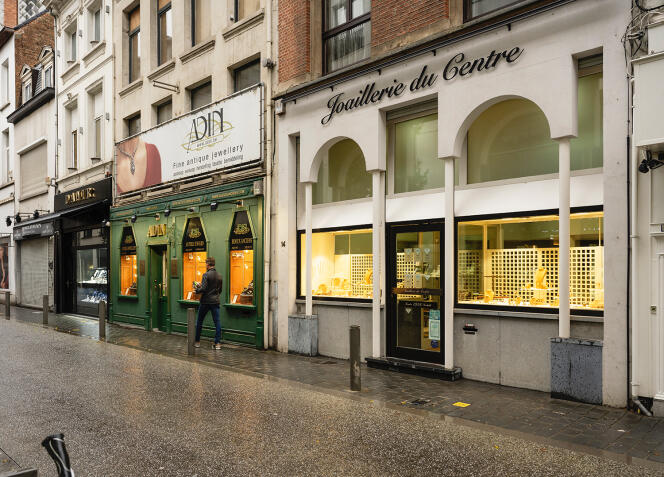The three narrow streets near the train station in Antwerp, Belgium, where around 200 million dollars (189 million euros) of diamonds pass through every day, protect themselves from the rest of the world. This morning of October 10, in a “diamond district” in the midst of the work, rare groups of tourists come across representatives of large Indian firms or orthodox Jewish families who have worked for generations in these buildings with their grayish facades.
In the Beurs Voor Diamanthandel, one of the four diamond exchanges in the Flemish city, you need a visitor badge to be authorized to pass through the slightest gate. At 6e floor, there are the premises of several companies, including Alrosa, the Russian leader, responsible for a third of the world’s diamond production. While many Russian companies have been under sanctions since the invasion of Ukraine, Alrosa employees are going to the office ” every day “, assure several neighborhood employees.
This situation could soon change: the G7 (France, Germany, Canada, United States, Italy, Japan, United Kingdom) plans to announce a ban on the trade in Russian diamonds any day now. This would come on top of a drop in market prices and competition from cheaper and very popular synthetic diamonds. Within this Antwerp industry which has existed since the end of the 19the century, and represents 70% of world production with its 1,700 specialized companies, many diamond dealers met complain : “This is the worst crisis in our history. »
Close to the Kremlin
The Belgian port and Alrosa are long-time allies. Based in Antwerp since its creation in 1992 and becoming influential in the mid-2000s, “the Russian company considers the city as a reliable entry point to avoid finding on the market “blood diamonds”, these “blood diamonds” which make it possible to finance armed groups around the world”, explains Hans Merket, a researcher at the International Peace Information Service (IPIS), an independent human rights research institute.
Alrosa holds 90% of the Russian market thanks to its mines in Siberia. The remaining 10% is operated by a second Russian company, Grib Diamonds. Sanctioned by the United States since October, this company is suspected of money laundering by Belgian justice. After the invasion of Ukraine in February 2022, none of the eleven sets of sanctions drawn up by the European Union against Russia concerned diamond traders. Alrosa therefore continued to do business in Europe: in 2022, 1.4 billion euros of Russian diamonds were purchased by European companies.
You have 68.18% of this article left to read. The rest is reserved for subscribers.
